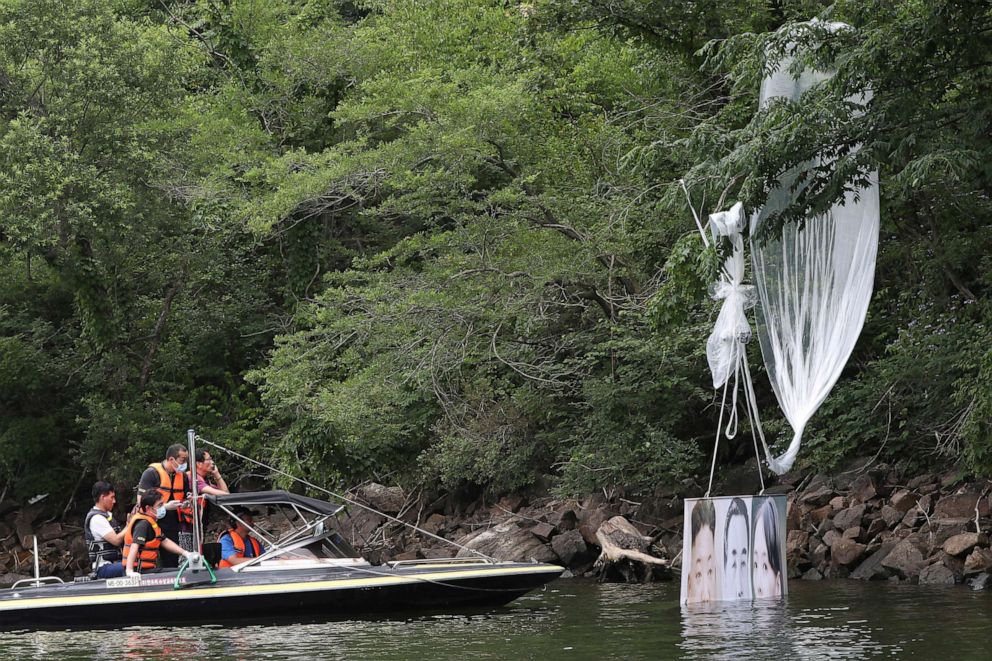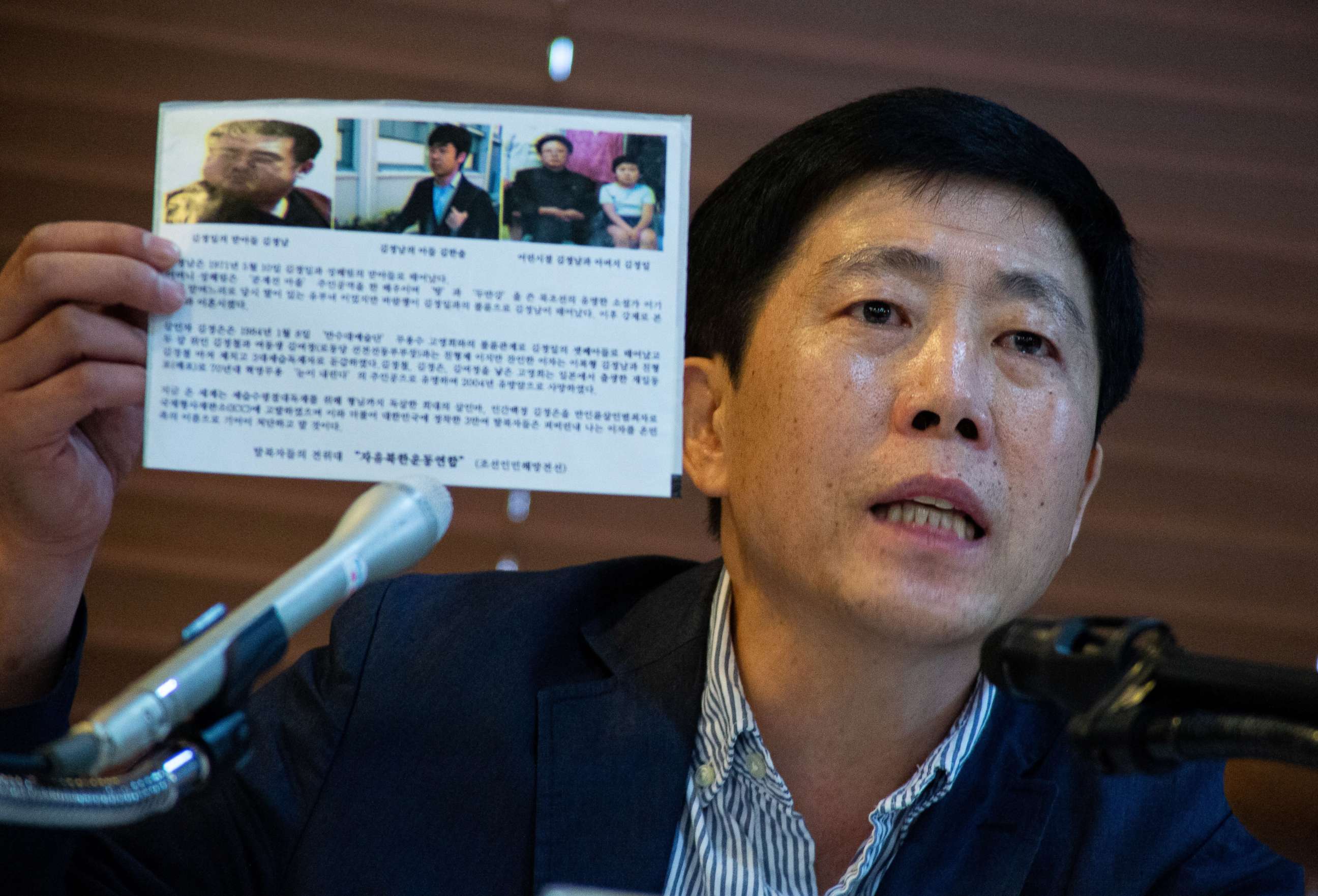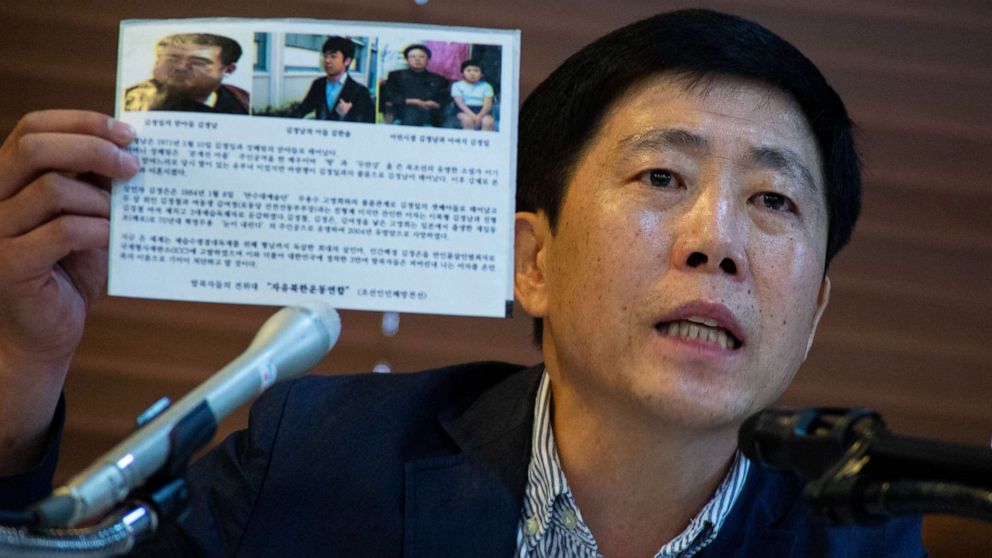South Korea cancels corporate license of 2 civic groups that send leaflets into North Korea
SEOUL, South Korea -- South Korea's Ministry of Unification revoked license permits of two civil groups led by anti-North Korea activists, stating that their operations "raise tensions" and "harm public interest."
The donor-supported groups, Fighter for Free North Korea (FFNK) and Kuensaem, have been sending propaganda leaflets across the border into North Korea several times a year. But the cancellation of corporate licenses will no longer allow them to claim tax deductions, nor will donors receive tax benefits.

"The two corporations severely hindered the government's unification policy or efforts for unification by sending anti-North Korea leaflets over the border," the Unification Ministry said in a statement sent to reporters on Friday.
Park Sang-hak, the head of FFNK, vowed to continue sending propaganda leaflets at the border despite the authorities' decision.
"I have nothing more to talk about this decision. All I can say is, democracy has collapsed in Korea. We will begin our legal battle," Park told ABC News.
Anti-North Korea activists in the South are accused by the government of hindering peace on the Korean peninsula and posing risks to the lives of the residents living near the border.
Park, who escaped North Korea to settle in South Korea in 1999, describes leaflets as the "letter of truth" to tell people about Kim Jong Un's inhuman dictatorship to people in North Korea. FFNK has been floating anti-regime leaflets over the inter-Korean border since 2004.
"All North Koreans have the right to learn about freedom and democracy. As a defector myself, it is my conscience to help retrieve their basic rights," Park said.
Another North Korean defector An Chan-il, head of World Institute For North Korea Studies, shared his memoirs of leaflets while living in the North.
"During my military service at the demilitarized zone 50 years ago, anti-Pyongyang leaflets were everywhere. There were pictures of women in bikinis at the beach. I realized [back then] that South Korea is far more open-minded and developed compared to North Korea" An said.
Leaflet-sending at the border has a long history and dates back to the Korean war, which ended in 1953.
"Leaflets were first used to convince soldiers to defect to the other side during the war. But after the ceasefire agreement, both South and North began sending leaflets to compete over their political regimes and prove their superiority," Moon Seong-muk, a researcher at the Korea Research Institute for Strategy, told ABC News.
The two Koreas have agreed to stop cross-border propaganda, which includes flyers, several times since the 1970s. According to South Korea's presidential office, there were five prime agreements banning leaflets throughout history.

On July 4, 1972, both Koreas made progress in exchanging opinions on peaceful unification and promised to end their cross-border propaganda. The most recent occasion was in 2018, when President Moon Jae-in met Kim Jong Un in Pyongyang for a summit talk.
Activists in the South have continued sending leaflets to the North while the South Korean government did not practically restrict them until North Korea publicly brought this issue up and escalated tensions with South Korea in June.
Less than two months ago, in May, Kim Yo-jung, the sister of Kim Jong-un, announced a fiery condemnation of defectors in the South who sent leaflets over the border. She called them "human scum little short of wild animals who betrayed their homeland."
Kim then forewarned the destruction of the inter-Korean liaison office in mid-June. After the blow-up, the South Korean government ramped up its restrictions on leaflets sent by anti-North Korea activists. South Korean police raided their office and investigated Park for raising tensions and potentially endangering residents living near the border.
Seoul Metropolitan Police Agency is investigating four civil groups that have sent flyers to North Korea for violating Inter-Korean Exchange and Cooperation Law prohibiting propaganda activities.
Park vowed to not give up on leaflets even if he goes to jail. "As long as North Korea continues to suppress people, we will keep on raising our voices until North Korea is liberated," Park said at the foreign press conference last week.




